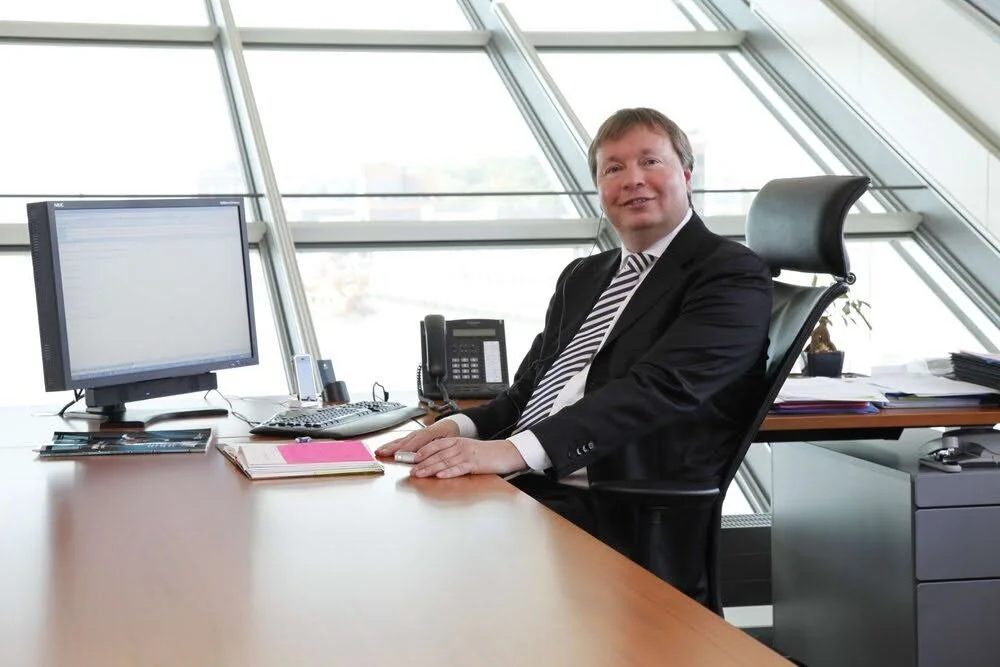Peter Jaederberg: How to reframe the meaning of “Impact Investing”
This week, the TTI Interview Series covers our member Peter Jaederberg. Peter is an impact investor whose career spanned across Wall Street, digital content publishing and real/alternative assets. He founded the Jaederberg & Cie. Group in 2010.
Entrepreneurial Impact Investing
Peter, tell us a little about your work and how it intersects with the impact space.
Our Jaederberg & Cie. Group ("JC") is an entrepreneurial impact investor responsible for two investment projects which both have high sustainability impact, low capital market correlation, and high returns. JC offers asset participation (“real equity”) to co-investors.
One of them concerns the sandalwood market. For thousands of years, billions of people coveted sandalwood, causing its threat of extinction (IUCN red list). Its essential oil with medicinal and olfactory properties makes the tree one of the most valuable ones on earth. Since 2010, JC has been party to the "commodity monopoly" cultivating sandalwood in reforested mixed forests in Australia’s tropical north. From the JC owned acreage (320,000 sandalwood trees) the expected gross harvest revenues amount to over one billion euros, 2028 - 2033. While JC is the managing lead investor, half of this belongs to 1,400+ private and professional co-investors. Sustainability impact: conservation of a species, creation of biodiversity, positive carbon effects, sustainable use of natural resources, enabling unique medicines for humans and animals. In 2019, "JC Sandalwood" was awarded Best Impact Investment in Germany.
In 2019, JC co-founded “Ecomet Urban Metals”, a disruptive green tech solution producing valuable metals and (rare earth) metal alloys by recycling electronic waste, metal scrap, and metal dust ("true circular economy") while destroying toxic pollutants. Compared to conventional methods: <98 % less carbon, <85 % less energy.
As an impact investor, I’m currently looking at further unique projects with high SDG potential.
Sustainability in the Real World
What is your own definition of impact?
An investment qualifies to be an Impact Investment by directly causing or creating additional sustainability in the real world. Impact Investing is disruptive to ESG and the general understanding of Sustainable Finance. Thus, while investing into ETFs (exchange-traded funds) or mutual funds, in turn buying listed shares, i.e. public equity might be a good bet on sustainability, but has no direct or noteworthy impact on the company or project which may cause sustainability. Such investments qualify for impact-washing. I fear 99%+ of all sustainable finance offerings are label fraud, as the monies invested are not forwarded to the real economy.
Reframing the mindset of “Impact Investing”
Peter, what do you think is one of the biggest challenges in the impact space? What stands on the way of providing solutions faster?
The understanding and mindset of what “Impact Investing” means is one of the biggest challenges.
With a correct understanding of impact investing, regulations, laws, and rules would be changed and investments would be allocated differently. Then, the misleading “Sustainable Finance” lemming movement would end.
“Impact” - the broad and misleading meaning of the sole word
Leading from this, could you elaborate on some of the misconceptions you’ve noticed regarding what “impact” is all about?
Due to imprecise definitions, 95%+ of all "Sustainable Finance" investments (USD 4+ trillion p.a.) do not create any noteworthy sustainability. To change this misallocation, I propose a precise definition of "Impact Investing".
There are two levels to be regarded: (1) the real-world sustainability created by a project/solution, and (2) the causality of capital employed/invested in creating that real-world sustainability (additionally).
To use "impact" as a sole word is too general - every action (or non-action) has an effect. This also applies to both the project and the investment level. I advocate using “impact” on the investment level only, to avoid misleading thoughts and actions.
Otherwise, an “impact investor” could be someone investing into an SDG impact (typically through public equity), instead of (allowing only the meaning of) someone who impacts (creates, generates and causes) sustainability by investment; by inserting capital into a project.
Diving deeper, one should question whether buying an ETF is an investment or just a bet. However, that discussion may seem more hair-splitting to most than introducing “Impact Investment”.


